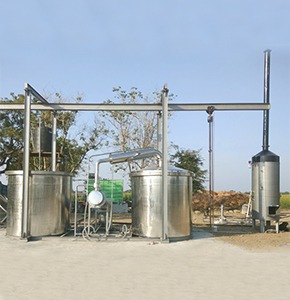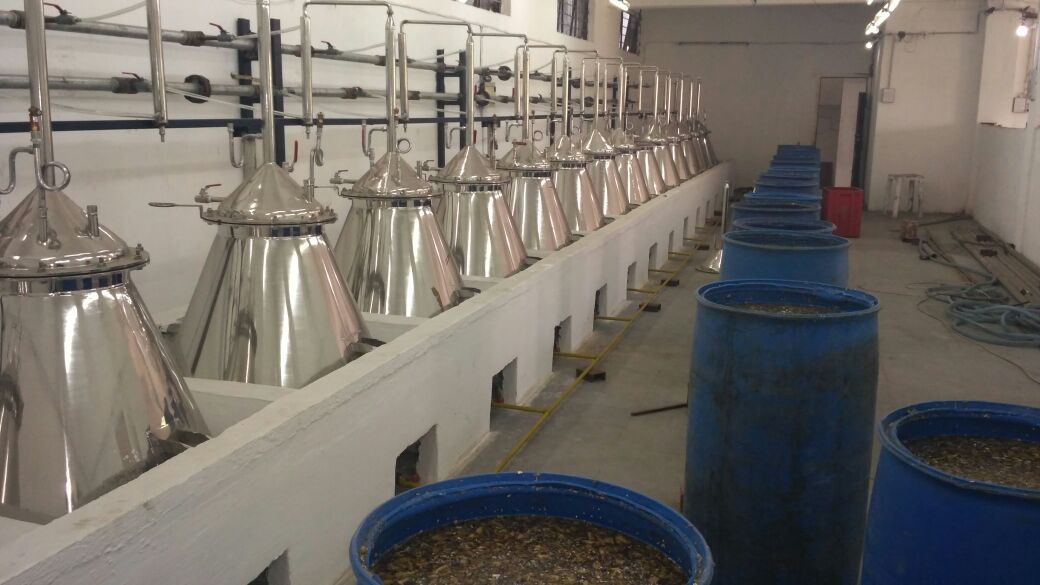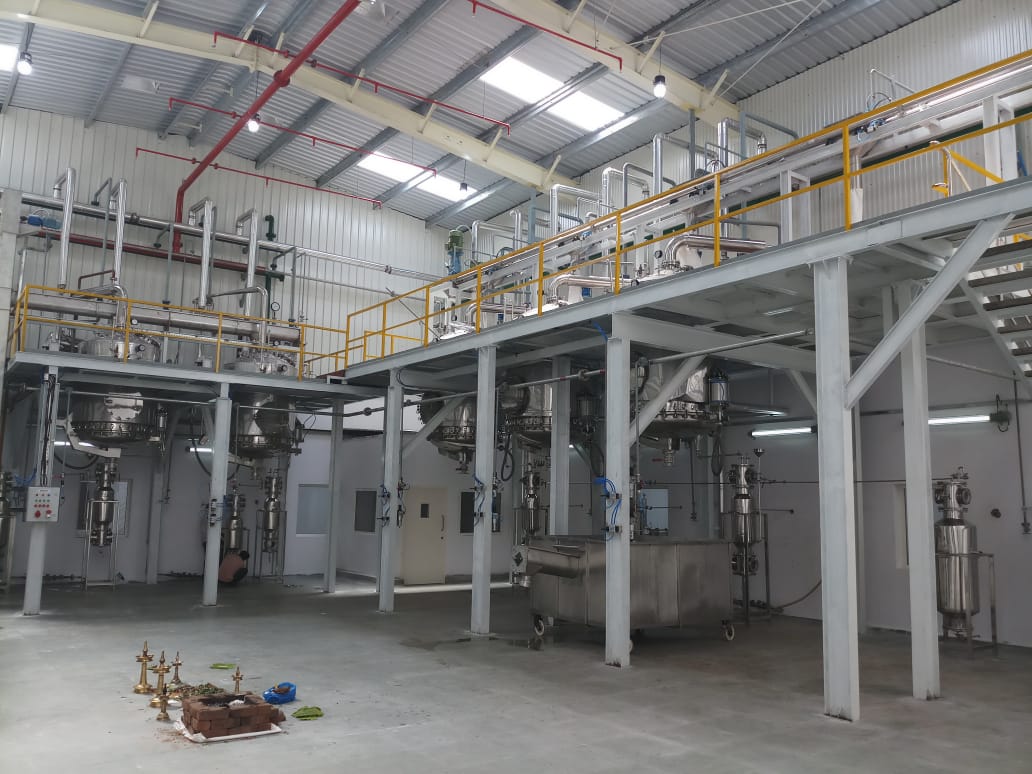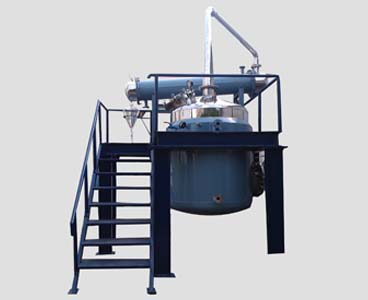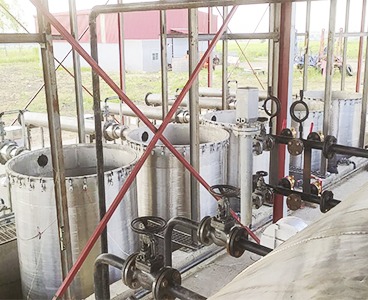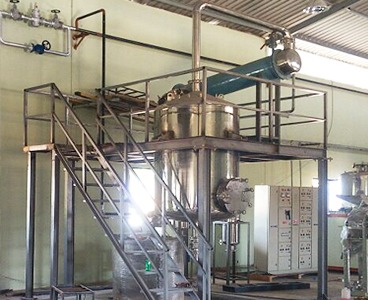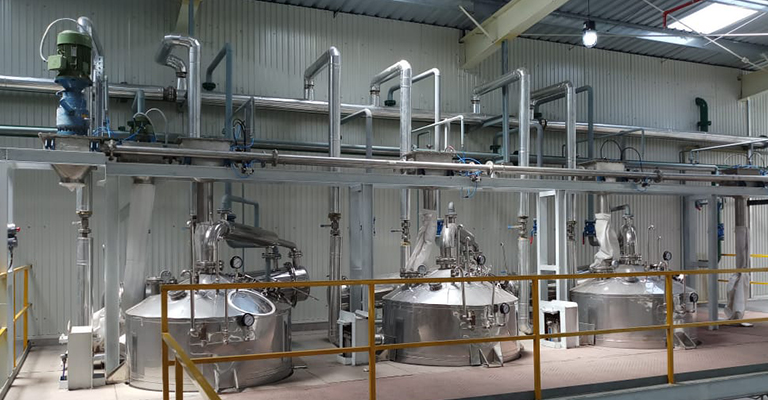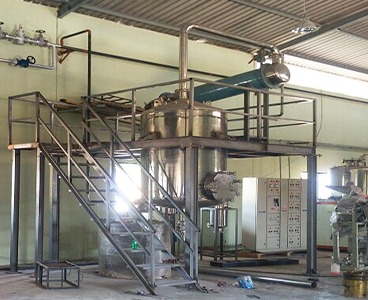Welcome to Best Engineering Technologies
Enquiry for Rosemary (Leaves / Flowers / Buds) Oil Distillation Plant
Our Products
Herbal / Solvent Extraction Plants
Floral Extraction Plant
- Bacepa Monnieri Extraction Plant
- Bees Wax Absolute Extraction plant
- Black Currant (Buds)Extraction plant
- Boronia Absolute Extraction plant
- Cassie (Acacia Farnesiana)Extraction plant
- Champa Extraction plant
- Cistus Labdanum Extraction plant
- Frangipani Extraction plant
- German Chamomile Extraction plant
- Jasmine Floral Concrete Extraction Plant
- Jonquil Floral Concrete & Absolute Extraction Plant
- Kewda (Kewada) Floral Concrete & Absolute Extraction Plant
- Linden Blossom Floral Concrete & Absolute Extraction Plant
- Magnolia Floral Concrete & Absolute Extraction Plant
- Marigold Floral Concrete & Absolute Extraction Plant
- Osmanthus Floral Concrete & Absolute Extraction Plant
- Rose Floral Concrete & Absolute Extraction Plant
- Salacia Reticeslata Extraction Plant
- Sandal Wood Absolute Solvent Extraction Plant
- Tuberose Floral Concrete & Absolute Extraction Plant
Herbal Extraction Plants
- Acacia Catechu Herbal Extraction Plant
- Adhatoda Vasica Herbal Extraction Plant
- Aerva Lanata Herbal Extraction Plant
- Aloe Vera Processing Plant
- Amla Juice Extraction Plant
- Andrographis Paniculata(Kalmegh) Herbal Extraction Plant
- Annanthamool Herbal Extraction Plant
- Annato Seed Herbal Extraction Plant
- Arjuna Bark (Terminalia arjuna)Herbal Extraction Plant
- Ark Leaves Herbal Extraction Plant
- Artemisia Annua Herbal Extraction Plant
- Ashwagandha Herbal Extraction Plant
- Ashwagandha(Withania Somnifera) Extraction Plant
- Asparagus Herbal Extraction Plant
- Bacopa Monnieri(Brahmi) Herbal Extraction Plant
- Bamboo Herbal Extraction Plant
- Banaba(Lagerstroemia speciosa) Herbal Extraction Plant
- Bavachi(Bakuchi) Seeds Herbal Extraction Plant
- Beetroot Extract Herbal Extraction Plant
- Beheda (Terminalia bellirica) – Herbal Extraction Plant
- Berberis Aristata (Daruharidra) – Herbal Extraction Plant
- Bhringraj (Eclipta alba) – Herbal Extraction Plant
- Bitter Melon (Momordica charantia) Herbal Extraction Plant
- Bixin Extraction Plant
- Black Cumin Extract Herbal Extraction Plant
- Black Pepper (Piper nigrum) Extract – Herbal Extraction Plant
- Black Pepper Piperine Extraction Plant
- Boswellia Serrata Herbal Extraction Plant
- Brahmi(Bacopa Monnieri) Herbal Extraction Plant
- Caralluma Fimbriata – Herbal Extraction Plant
- Cassia Herbal Extraction Plant
- Centella Asiatica Extract – Herbal Extraction Plant
- Chaste Berry Extract (Vitex agnus-castus) – Herbal Extraction Plant
- Chirata (Swertia chirayita) – Herbal Extraction Plant
- Cinchona bark Herbal Extraction Plant
- Cinnamon Bark Extract Herbal Extraction Plant
- Cissus Quadrangularis Extract – Herbal Extraction Plant
- Citrus Fruit Extract Herbal Extraction Plant
- Coffee Bean – Herbal Extraction Plant
- Coleus Forskohlii Extraction Plant
- Coleus Forskohlii Removal Oil Herbal Extraction Plant
- CRTO Extract Herbal Extraction Plant
- Cucumber(Cucumis sativus)Extract Herbal Extraction Plant
- Curcuma Longa (Turmeric) Extract Herbal Extraction Plant
- Curcumin Herbal Extraction Plant
- Curry Leaf Extract Herbal Extraction Plant
- Daru Haldi (Tree Turmeric) Herbal Extraction Plant
- Deglycyrrhizinated Licorice Herbal Extraction Plant
- Echinacea purpurea Herbal Extraction Plant
- Eclipta Alba – Herbal Extraction Plant
- Eswaramool – Herbal Extraction Plant
- Fenugreek Extract – Herbal Extraction Plant
- Ganuga Seed Herbal Extraction Plant
- Garcinia Cambogia Extract Herbal Extraction Plant
- Garlic Extract Herbal Extraction Plant
- Ginger Herbal Extraction Plant
- Ginkgo Biloba Extract – Herbal Extraction Plant
- Ginseng Extract Herbal Extraction Plant
- Glycyrrhiza Glabra Extract Herbal Extraction Plant
- Gokuru Herbal Extraction Plant
- Gotukola (Centella Asiatica) Extract Herbal Extraction Plant
- Grape Seed Extract Herbal Extraction Plant
- Green Coffee Bean Extract Herbal Extraction Plant
- Green Coffee Extract Herbal Extraction Plant
- Green Tea Extract Herbal Extraction Plant
- Griffonia simplicifolia Extract – Herbal Extraction Process
- Guggul Extract(Commiphora mukul) Herbal Extraction Process
- Gymnema Sylvestre Extract Herbal Extraction Plant
- Harada Herbal Extraction Plant
- Hibiscus Liquid Herbal Extraction Plant
- Horse Chestnut Herbal Extraction Plant
- Hydroxin Herbal Extraction Plant
- Inula Racemosa Herbal Extraction Plant
- Jatamansi Herbal Extraction Plant
- Kaladana Seed (Ipomoea hederacea) Herbal Extraction Plant
- Kalmegh (Andrographis paniculata)Herbal Extraction Plant
- Karela (Momordica charantia)Herbal Extraction Plant
- Kateli (Solanum xanthocarpum)Herbal Extraction Plant
- Kava Extract–Herbal Extraction Plant
- Kutki (Picrorhiza kurroa) Herbal Extraction Plant
- Licorice (Glycyrrhiza glabra) – Herbal Extraction Plant
- Maca (Lepidium meyenii) Herbal Extraction Plant
- Mango Bark Herbal Extraction Plant
- Manjistha Herbal Extraction Plant
- Marigold Herbal Extraction Plant
- Milk Thistle Seed Herbal Extraction Plant
- Momordica (Bitter Melon / Karela) Herbal Extraction Plant
- Moringa Leaf Herbal Extraction Plant
- Mucuna Pruriens Herbal Extraction Plant
- Mucuna Seed Herbal Extraction Plant
- Mulberry Leaf Herbal Extraction Plant
- Nalleru(Cissus quadrangularis) Herbal Extraction Plant
- Neem Leaf (Azadirachta indica) Herbal Extraction Plant
- Nirgundi (Vitex negundo) Herbal Extraction Plant
- Noni (Morinda citrifolia) Herbal Extraction Plant
- Ocimum Sanctum (Tulsi) Herbal Extraction Plant
- Onion(Allium cepa) Herbal Extraction Plant
- Papaya Leaf (Carica papaya) Herbal Extraction Plant
- Passiflora Incarnata (Passion Flower) Herbal Extraction Plant
- Phyllanthus Amarus / Niruri Herbal Extraction Plant
- Picrorhiza Kurroa Root Herbal Extraction Plant
- Pomegranate Herbal Extraction Plant
- Pterocarpus Marsupium Herbal Extraction Plant
- Pushkar Mool Herbal Extraction Plant
- Rasna Leaf Herbal Extraction Plant
- Rauwolfia Serpentina (Sarpagandha) Extraction Plant
- Red Chilli Oleoresin Extraction Plant
- Reetha (Soapnut) Herbal Extraction Plant
- Revand Chini (Indian Rhubarb) Extraction Plant
- Rhodiola Rosea Extraction Plant
- Rosmarinus Officinalis (Rosemary) Extraction Plant
- Safed Musli (Chlorophytum Borivilianum) Extraction Plant
- Salacia Reticulata Extraction Plant
- Saw Palmetto (Serenoa Repens) Extraction Plant
- Senna (Cassia Angustifolia) Extraction Plant
- Sesamin Oil Extraction Plant
- Shatavari (Asparagus Racemosus) Extraction Plant
- Shatavari (Asparagus Racemosus) Extraction Plant
- Shikakai Liquid Extraction Plant (Acacia concinna)
- Shilajit(Asphaltum) Extraction Plant
- Silymarin (Milk Thistle) Extract Plant
- Soya(Glycine max) Extract Plant
- Spices Oleoresin Extraction Plant
- Spinach(Spinacia oleracea) Extract Plant
- Spirulina Platensis Extract Plant
- Stevia Rebaudiana Extract Plant
- Sugar Molasses Extraction Plant
- Sugar Wax Extraction Plant
- Tamarind Extraction Plant
- Terminalia Arjuna Bark Extraction Plant
- Terminalia Bellirica Extraction Plant
- Terminalia Bellirica Tannins Extraction Plant
- Terminalia Chebula Extraction Plant
- Tetrahydrocurcumin Extraction & Processing Plant
- Thylophora Indica Extraction Plant
- Tinospora Cordifolia (Giloy) Extraction Plant
- Tomato Extraction & Processing Plant
- Tribulus Terrestris (Gokshura) Extraction Plant
- Triphala Extraction Plant
- Valerian (Valeriana officinalis) Extraction Plant
- Valeriana Officinalis (Valerian Root) Extraction Plant
- Vamu (Ajwain) Oil Extraction Plant
- Vasaka (Adhatoda Vasica) Extraction Plant
- Vinicia Rocia ( 95% Ajmlocin ) Extraction Plant
- Violet Leaf (Viola spp.) Extraction Plant
- Vitex Lucoxylon Extraction Plant
- White Kidney Bean Extraction Plant
Natural Colour Extraction Plants
- Advanced Methods for Red Color Extraction from Fruits and Vegetables
- Black Bean Color Extraction Plant
- Black Rice Color Extraction Plant
- Blue Color Extraction from Woad Leaves (Isatis tinctoria)
- Blue to Bluish Purple Color Extraction from Hyacinth & Cornflower Flowers
- Blue to Bluish Purple Color Extraction from Indigo Foliage
- Blue to Bluish-Purple Color Extraction from Fruits – Dogwood, Mulberries, Elderberries, and Blueberries
- Brown Color Extraction from Coffee Grounds
- Brown Color Extraction from Dandelion Roots
- Brown Color Extraction from Ivy Woody Stems
- Brown Color Extraction from Oak Bark / Birch Bark
- Brown Color Extraction from Walnut Hulls
- Brown Color Extraction from Yellow Dock Roots
- Color Extraction from Black Carrot & Black Currant
- Color Extraction from Iris Roots
- Green Color Extraction from Flowers – Tea Tree, Yarrow & Black-Eyed Susans
- Green Color Extraction from Leaves – Spinach, Chamomile & Nettle
- Grey to Black Color Extraction from Sumac Leaves
- Grey to Black Color Extraction from Walnut Hulls
- Natural Color Extraction from Larkspur & Dyer’s Broom
- Oak Galls (Galls) Color Extraction Plant
- Orange Color Extraction from Brown Onion Skins
- Orange Color Extraction from Eucalyptus Leaves
- Orange Color Extraction from Giant Coreopsis & Barberry Plant
- Orange Color Extraction from Turmeric & Bloodroot
- Pink Color Extraction from Avocado & Cherries
- Pink Color Extraction from Lichens
- Pink Color Extraction from Roses
- Pink Color Extraction from White Bedstraw Roots
- Purple Color Extraction from Vegetables
- Red Color Extraction from Avocado
- Red Color Extraction from Brazil Wood
- Red Color Extraction from Hibiscus Flowers
- Red Color Extraction from Inner Bark of Red Maple Tree (Acer rubrum)
- Red Color Extraction from Madder Root (Rubia Cordifolia)
- Red Color Extraction from Red Onion Skins
- Red Color Extraction from St. John’s Wort Plant
- Red Color Extraction from Sumac Berries
- Red Color Extraction from Sycamore Bark
- Reddish-Purple Color Extraction from Dark Red Hibiscus & Day Lilies Flowers
- Yellow Color Extraction from Annatto (Bixa orellana) Seeds
- Yellow Color Extraction from Bay Leaves & Tree Leaves
- Yellow Color Extraction from Brown Onion Skins
- Yellow Color Extraction from Flowers – Marigold, Queen Anne’s Lace, and Goldenrod
- Yellow Color Extraction from Goldenrod Shoots
- Yellow Color Extraction from Osage Orange (Maclura pomifera) Inner Bark or Shavings
- Yellow Color Extraction from Saffron Stamens
- Yellow Color Extraction from St. John’s Wort & Larkspur
- Yellow Color Extraction from Turmeric Roots
Spices Oleo Resin Extraction Plants
- Ajwain Oleoresin Extraction Plant
- Black Pepper Oleoresin Extraction Plant
- Capsicum Oleoresin Extraction Plant
- Cardmom Oleoresin Extraction Plant
- Chilli Oleoresin Extraction Plant
- Cinnamon Bark Oleoresin Extraction Plant
- Clove Oleoresin Extraction Plant
- Coriander Oleoresin Extraction Plant
- Cumin Oleoresin Extraction Plant
- Fennel Oleoresin Extraction Plant
- Fenugreek Oleoresin Extraction Processing Plant
- Garlic Oleoresin Extraction Plant
- Mustard Oleoresin Extraction Plant
- Nutmeg Oleoresin Extraction Plant
- Onion Oleoresin Extraction Plant
- Pink Pepper Oleoresin Extraction Plant
- Sweet Fennel Oleoresin Extraction Plant
- Turmeric Oleorein Extraction Equipment
Essential Oil / Steam Distillation Plants
Flower & Buds Oils Distillation Plants
- 100 TPD Steam Distillation Plant
- Arnica (Flower) Oil Distillation Plant
- Blue Tansy (Flowers / Buds / Leaves) Oil Distillation Plant
- Boronia (Flowers / Petals / Buds) Oil Extraction Plant
- Cananga (Flowers / Petals / Buds) Oil Extraction Plant
- Cananga (Flowers) Essential Oil Distillation Plant
- Catnip (Flowers / Buds / Leaves) Essential Oil Distillation Plant
- Field Level Distillation Unit (FDU) / Steam Distillation Plant
- German Chamomile / Blue Chamomile (Flowers / Buds) Essential Oil Distillation Plant
- Goldenrod (Flowering Top) Essential Oil Distillation Plant
- Gums And Resins Oil Distillation Plant
- Helichrysum Gymnocephalum (Flowers) Essential Oil Distillation Plant
- Jasmine Grandiflorum (Flower) Essential Oil Extraction Plant
- Kewda (Flower) Essential Oil Distillation Plant
- Lab Model / Pilot Model Distillation Plant
- Lavandin (Leaves / Flowers / Buds) Essential Oil Distillation Plant
- Lavender (Leaves / Flowers / Buds) Essential Oil Distillation Plant
- Multipurpose Distillation Plant
- Poplar (Buds) Extraction Plant
- Roman Chamomile (Flowers / Buds) Distillation Plant
- Rose (Flower) Distillation Plant
- Spices Oil Distillation Plant
- Tagetes (Flowers) Distillation Plant
- Tube Rose (Flower) Distillation Plant
- Ylang-Ylang (Flower) Distillation Plant
Gums & Resins Distillation Plant
- Benzoin Resin Extraction & Distillation Plant
- Elemi (Canarium luzonicum) Resin Oil Distillation Plant
- Frankincense Oil Distillation Plant
- Galbanum Resin Oil Distillation Plant
- Gurjum Gum Distillation Plant
- Myrrh & Opoponax Resin Oil Distillation Plant
- Peru Balsam Oil Distillation Plant
- Pine Sap Distillation Plant
Leaves Oils Distillation Plants
- Bargamot Mint(Leaves) Oil Distillation Plant
- Basil (Leaves) Oil Distillation Plant
- Bay Laurel (Laurus nobilis) Oil Distillation Plant
- Bay(Leaves) Oil Distillation Plant
- Betel (Piper betle) Leaf Oil Distillation Plant
- Cajeput (Melaleuca cajuputi) Oil Distillation Plant
- Cannabis / Hemp (Leaves & Flowering Tops) Oil Extraction Plant
- Cilantro / Kothimeera (Leaves) Oil Distillation Plant
- Cinnamon (Leaves) Oil Distillation Plant
- Cistus / Labdanum (Flowers & Leaves) Oil Distillation Plant
- Clary Sage (Flowers, Buds & Leaves) Oil Distillation Plant
- Clove (Leaves) Oil Distillation Plant
- Corn Mint (Leaves) Oil Distillation Plant
- Curry Leaves (Leaves) Oil Distillation Plant
- Dalmatian Sage (Flowers, Leaves & Buds) Oil Distillation Plant
- Davana (Flowers & Leaves) Oil Distillation Plant
- Eucalyptus Globulus (Leaves) Oil Distillation Plant
- Eucalyptus Radiata (Leaves) Oil Distillation Plant
- Fragonia (Branches & Leaves) Extraction Plant – High-Purity Essential Oil Extraction
- Geranium (Leaves) Extraction Plant
- Hemp / Cannabis (Leaves & Flower Toppings) Extraction Plant – High-Purity CBD & Essential Oil Extraction
- Holy Basil (Tulsi) Extraction Plant – Premium Herbal Extraction Solution
- Hops (Flowers / Cones) Extraction Plant
- Hyssop (Leaves / Flowers / Buds) Extraction Plant
- Kaffir Lime Petitgrain (Leaves & Twigs) Oil Distillation Plant
- Kanuka / Manuka / Tea Tree (Leaves) Oil Distillation Plant
- Kunzea (Leaves) Oil Distillation Plant
- Ledum / Labrador Tea / Greenland Moss (Leaves) Oil Distillation Plant
- Lemon (Rind) Oil Distillation Plant
- Lemon Balm / Melissa (Leaves / Flowers / Buds) Oil Distillation Plant
- Lemon Eucalyptus (Leaves) Oil Distillation Plant
- Lemon Grass (Grass) Oil Distillation Plant
- Lemon Verbena (Leaves) Oil Distillation Plant
- Magnolia / White Champaca (Flowers / Blossoms) Oil Distillation Plant
- Marjoram (Leaves / Flowers / Buds) Oil Distillation Plant
- May Chang (Litsea Cubeba) Fruit Oil Distillation Plant
- Myrtle (Leaves) Oil Distillation Plant
- Niaouli (Leaves) Oil Distillation Plant
- Ocotea (Leaves) Oil Distillation Plant
- Oregano (Leaves / Flowers / Buds) Oil Distillation Plant
- Palmarosa (Grass) Oil Distillation Plant
- Patchouli Oil Distillation Plant
- Peppermint Oil Distillation Plant
- Ravensara Oil Distillation Plant
- Ravintsara Oil Distillation Plant
- Rhododendron Ledum(Flowers/Leaves) Oil Distillation Plant
- Rosalina (Melaleuca Ericifolia) Leaves Oil Distillation Plant
- Rose Geranium (Leaves) Oil Distillation Plant
- Rosemary (Leaves / Flowers / Buds) Oil Distillation Plant
- Saro (Leaves) Oil Distillation Plant
- Spearmint (Leaves / Flowers / Buds) Oil Distillation Plant
- Thyme (Leaves / Flowers / Buds) Oil Distillation Plant
- Turmeric (Leaves) Oil Distillation Plant
- Wintergreen (Leaves) Oil Distillation Plant
- Xanthoxylum / Timur (Leaves & Berries) Oil Distillation Plant
- Yarrow (Leaves / Flowers / Buds) Oil Distillation Plant
Needles & Twigs Distillation Plants
- Balsam Fir Twigs Distillation Plant
- Black Spruce Twigs Distillation Plant
- Blue Spruce Twigs Distillation Plant
- Cypress (Needles) Distillation Plant
- Douglas Fir Distillation Plant
- Fragonia Twigs Distillation Plant
- Hemlock (Twigs & Needles) Distillation Plant
- Hinoki (Chamaecyparis obtusa) Bark & Wood Distillation Plant
- Pinyon Pine (Pinus edulis) Distillation Plant
- Siberian Fir (Abies sibirica) Distillation Plant
- Silver Fil Needles distillation Plant
- Taiwan Hinoki Bark Distillation Plant
- White Camphor (Cinnamomum camphora) Distillation Plant
Roots / Husk Distillation Plant
- Angelica Root (Angelica archangelica) Distillation Plant
- Arnica (Arnica montana) Distillation Plant
- Calamus Husk (Acorus calamus) Distillation Plant
- Costus Root(Saussurea costus) Distillation Plant
- Ginger Root (Zingiber officinale) Oil Distillation Plant
- Iris / Orris Root (Iris germanica, Iris pallida) Distillation Plant
- Jatamansi / Spikenard (Nardostachys jatamansi) Root Distillation Plant
- Kapoor Kachri (Hedychium spicatum) Oil Distillation Plant
- Mace(Husk) Oil Distillation Plant
- Nagarmotha / Vetiver Oil Distillation Plant
- Spikenard (Nardostachys jatamansi) Root Distillation Plant
- Sugandha Bala (Acorus calamus) Oil Distillation Plant
- Sugandha Mantri (Gandhi Roots) Oil Distillation Plant
- Valerian (Valeriana officinalis) Root Oil Distillation Plant
- Vetiver (Vetiveria zizanioides) Root Oil Distillation Plant
- Zeodary (Curcuma zedoaria) Oil Distillation Plant
Seeds & Berries Distillation Plants
- Allspice Berries Oil Distillation Plant
- Ambrette Seeds Oil Extraction Plant
- Anise Seeds Oil Extraction Plant
- Caraway Seeds Oil Extraction Plant
- Carrot Seeds Oil Extraction Plant
- Celery Seed Oil Extraction Plant
- Dill Extraction Plant
- Java Pepper Berries (Cubeb) Oil Distillation Plant
- Juniper Berry Oil Distillation Plant
- Parsley Seed Oil Distillation Plant
- Star Anise Seed Oil Distillation Plant
- Sugandha Kokila Oil Distillation Plant
- Tomar Seed Oil Distillation Plant
Spices Oils Distillation Plants
- Ajwain Spice Oil Distillation Plant
- Bay Laurel Spice Oil Distillation Plant
- Black Pepper Spice Oil Distillation Plant
- Cardamom Oil Distillation Plant
- Cassia(Bark) Oil Distillation Plant
- Cinnamon Spice Oil Distillation Plant
- Clove Leaf Oil Distillation Plant
- Coriander Seed Oil distillation
- Cumin Seed Oil Distillation Plant
- Fennel Seed Oil Distillation Plant
- Garlic Spice Oil Distillation Plant
- Ginger Spice Oil Distillation Plant
- Nutmeg Oil Steam Distillation Plant
- Sweet Fennel Seed Oil Distillation Plant
- Turmeric Leaf Oil Distillation Plant
Wood / Bark Distillation Plants
- Agar wood Oil Distillation Plant
- Amyris Wood Distillation Plant
- Atlas Cedarwood Distillation Plant
- Australian Sandalwood Distillation Plant
- Blue Cypress Distillation Plant
- Cade / Juniper Wood Distillation Plant
- Cascarilla Bark Distillation Plant
- Cedarwood Distillation Plant
- Hinoki Wood Distillation Plant
- Ho Wood Distillation Plant
- Indian Sandalwood Distillation Plant
- Muhuhu Wood Distillation Plant
- Palo Santo Wood Distillation Plant
- Red Sandal Wood Distillation Plant
- Rosewood Distillation & Extraction Plant
- Sandal Wood Oil Distillation Plant
- Taiwan Hinoki (Chamaecyparis formosensis) Distillation Plant
- Virginian Cedarwood (Juniperus virginiana) Distillation Plant
Essential Oil / Steam Distillation Plants
Rosemary (Leaves / Flowers / Buds) Oil Distillation Plant

A rosemary oil distillation plant is a specialized facility designed to extract essential oil from the leaves, flowers, and buds of the rosemary plant (Rosmarinus officinalis). Rosemary essential oil is renowned for its fresh, herbaceous, and slightly camphoraceous aroma, and is widely used in aromatherapy, hair and skincare, natural medicine, and culinary applications due to its stimulating, antioxidant, and anti-inflammatory properties.
The primary method of extraction is steam distillation, where freshly harvested rosemary plant parts are placed in stainless steel distillation chambers. Steam passes through the biomass, vaporizing the volatile aromatic compounds. These vapors are then condensed and collected, allowing the essential oil to be separated from the hydrosol. The oil is filtered and stored in dark, airtight containers to protect it from oxidation and preserve its therapeutic quality.
Modern rosemary oil distillation plants are equipped with high-efficiency boilers, corrosion-resistant distillation units, condensers, and oil separators, with precise control of temperature and pressure to maximize yield and quality. The oil typically contains active constituents such as 1,8-cineole, camphor, alpha-pinene, and verbenone, depending on the chemotype, which contribute to its invigorating scent and health benefits. The plant follows stringent quality assurance and hygiene protocols, producing premium-grade rosemary oil for use in pharmaceuticals, cosmetics, personal care, and wellness industries.
Ask ChatGPT
Essential Oil / Steam Distillation Plants
Our Clients

































